Living Recovery: ‘You’re not going to be fighting like this forever’
“I think when we think so little of ourselves, it’s easy to assume no one else cares either. So, when I hear and addict say, ‘I’m only hurting myself,’ I try to remind them that you’re hurting anyone who loves you. It’s a ripple effect,” Sara Blake said.
April 23, 2019
Addiction doesn’t discriminate against anyone.
In 2007, a young woman broke her foot in a car accident. Due to the pain of that broken foot, she was prescribed Vicodin. That single prescription led to a 12-year-long battle with opiates for Sara Blake.
Today, Blake looks like any other woman that’s dedicated to her jobs, gives back to the community and has a daily schedule packed with responsibilities from beginning to end.
Blake is a “house mom” for Muskingum Behavioral Health’s Naomi House. When she’s not working in the house, she works at a local bakery, and in her free time, she sits on the board for the We Are Recovery Group, serves as the secretary for the Mid-East Area Service Committee of Narcotics Anonymous for seven counties in Ohio and sponsors other local women.
Among all of those duties, Blake said she is honored to hold the roles that she does, but living up to her own expectations, as well as others’ expectations of her, is not a feeling she’s always had.
“To actually, finally be at a place now where I’m proud of the job that I have and I’m proud of the role that I have in our local recovery community, I mean, I’m still getting used to that ’cause that’s very foreign to me,” Blake said.
Throughout Blake’s time in addiction, she recalls listening to other women in jail and identifying resources that each woman needed, encouraging other women to seek out treatment and helping others navigate the legal system.
While she’s dedicated to helping many people along their path to recovery, Blake said helping other women is really her passion.
“So many of the women who are incarcerated or that are in active addiction do not have that voice and therefore their needs are unmet,” Blake said. “They don’t know that they can ask for treatment when they’re incarcerated. Now, the culture is changing but I’ve seen it over time. Back when this all started for me, this wasn’t as mainstream Recovery wasn’t a thing.”
As a house mom for Naomi House, Blake has the opportunity to help and nurture women living in the recovery home.
“It is such an honor to be on this first crew of women because, you know, it’s just an honor that we were trusted with the duty of getting it off the ground,” Blake said. “And ‘we don’t know what we don’t know’ is something we keep saying because there’s so many things you run into.”
Prior to Blake starting her own recovery journey, she struggled with addiction and was in-and-out of incarceration for about 12 years.
As a child, Blake was gifted — she was very intelligent, excelled in school, got along well with everyone she encountered and lived a fairly normal lifestyle compared to other children.
When she was 12 years-old, Blake’s family moved from Akron to Guernsey County. While moving from the city to a rural area was a shock, Blake said she acclimated well, although, as she got older her potential grew and her sense of direction in life diminished.
In 2007, after she was involved in a car accident and prescribed Vicodin for a broken foot, Blake began to get prescription pills anywhere she could — stealing from family members, doctor shopping and getting unnecessary dental work in order to obtain medication.
“I would go get like tons of needless dental work to get Vicodin or Percocet and then one of my good friends from middle school, he was abusing OxyContin ’cause this was 2007, it was around back then, and it made me throw up and it made me sick, but I loved it,” Blake said.
From there, the addiction escalated.
“I’d abuse pills and alcohol and cannabis, but the opiate … that was unlike anything else. It relieved pain that I didn’t know I was feeling,” Blake said. “I’ve heard heroin be described as like putting down a suitcase or a backpack you didn’t realize you were carrying. … I had a pretty charmed life growing up and suddenly it was better.”
After getting into legal trouble and going to a prison alternative in Columbus, Blake got clean for a little while. Upon completing her probation, she sought out the same friend that introduced her to OxyContin and he offered her heroin. From 2012 to 2017, Blake said she used heroin nonstop.
Once again running into legal trouble in 2017, Blake knew she needed to make some changes in her life. Up until that point, Blake said she never thought she deserved treatment, nor that her addiction was severe enough to need help.
“I think for a long time I disqualified myself from treatment because I didn’t think it was bad enough,” Blake said. “When I would go to jail and I would hear about these women who had experienced significant trauma like sexual abuse, extreme poverty, things like that, I thought I wasn’t entitled to getting help.”
She spent over three months total in different in-patient facilities, but the Women’s Rural Recovery Program in Athens changed her life for the better. Throughout the duration of that program, Blake discovered a new way of life and her self-worth.
About six weeks after her release from the program, Blake encountered the most traumatic event she’d ever experienced. Her grandpa, who had lived just one house over from her throughout her entire life, died. In those moments following his death, Blake said she discovered how strong she truly was.
“I had my first big trigger immediately, and I got through it,” Blake said. “So, now, I can’t even imagine what I could use over ‘cause when we use … we manipulate ourselves into thinking it’s OK to use, like ‘oh they don’t care’ or ‘I just have to deal with this’ it’s a really, you have to be clever to feel OK with doing what we’re doing out there.”
Since then, Blake has focused not only on her sobriety, but helping others with their sobriety as well.
One of her biggest lessons that she works to instill in other people, and women specifically — in recovery or otherwise — is self-worth.
“We’re not so inclined to hurt ourselves when we think highly of ourselves, when we love ourselves,” Blake said. “So, I tell the women in the (Naomi) house, or wherever, talk to yourself like someone you love.”
Today, Blake uses her many positions to be a voice for people in addiction because getting help and sticking with it is not easy at first.
“When I’m talking to a newcomer, that’s one thing that I really try to get through to them. You’re not going to be fighting like this forever,” Blake said. “It’s tough, but when we replace our people, places and things, as they say, there’s a new freedom. I don’t have to think hard about fighting a craving. It just doesn’t even happen anymore.”
In the future, Blake wants to continue her work in helping other people within the local recovery community, but she wants to take her impact one step further. Instead of isolating herself to addiction recovery, Blake believes she can have an impact helping other women find their voice through the healthcare field.
While Blake has aspirations for her future, she said today she’s simply thankful for her second chance at life because not a day goes by that her “gratitude column” is not abundantly full.
Living Recovery is a multi-week series sharing personal stories of community members who were formerly addicts. The series is an effort to shed light on the possibility of recovery and feature people who have regained their lives through recovery. To reach out to the writer about this series, email jjohnston@ycitynews.com.

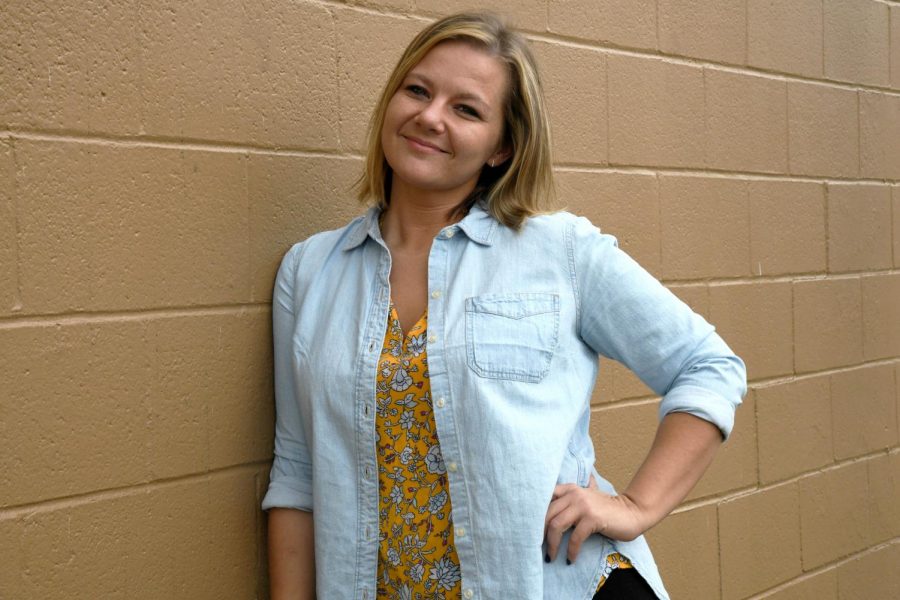





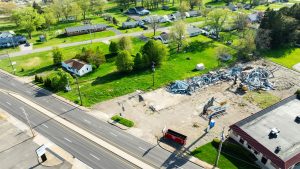
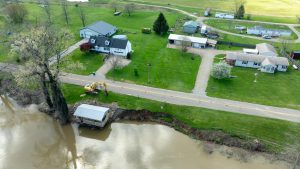

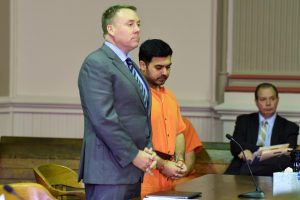


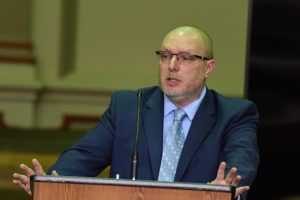


Terra White • May 2, 2019 at 11:45 pm
Sara, I’m so very proud of you and all you have accomplished.. As a recovering addict I’ve spent time around you and have always listened to everything you have to say about recovery.. Your very inspirational to me and I’m very greatful to have had the opportunity to get to know you.. We need more positive people in our community to keep spreading the message of hope. Life does get better it’s not perfect by any means or pain free however today life is good and for the first time in many years I can feel again.. Thanks for sharing your story because it does inspire others… Love ya ❤️
Evelyn Nagy • Apr 24, 2019 at 2:05 pm
Beautiful! What an inspiring story, thank you so much for sharing! Just beautiful!
Martha Martin • Apr 23, 2019 at 9:49 pm
So happy to read this and so proud of what Sara has accomplished. Best wishes to you as you continue to help others. Beautiful young lady.